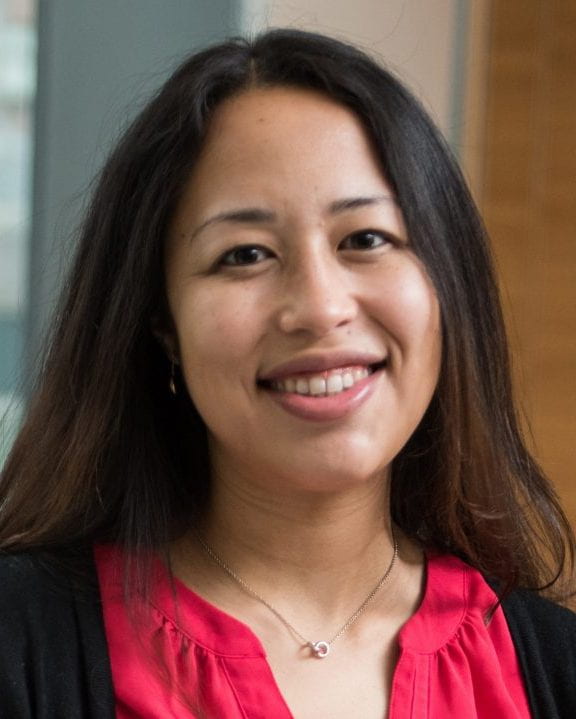June 14, 2018 | UCSC News | By Tim Stephens
The Pew Charitable Trusts has named Angela Brooks, assistant professor of biomolecular engineering at UC Santa Cruz, a Pew Scholar in the Biomedical Sciences. Brooks will receive a $300,000 award over four years to support her research on how mutations associated with cancer cause changes in gene expression.
The Pew Scholars Program in the Biomedical Sciences provides funding to young investigators of outstanding promise in science relevant to the advancement of human health. The program makes grants to selected academic institutions to support the independent research of outstanding individuals who are in the first few years of their appointment at the assistant professor level.
Brooks is an expert in the analysis of RNA sequencing data and is especially interested in the role of RNA splicing in gene expression. When a gene is expressed, its DNA sequence is copied from the chromosome to an RNA molecule, which then undergoes splicing to remove parts of the sequence. Only then can the RNA perform its function and direct the production of a protein. Splicing is governed by a complex regulatory system, and most genes can be spliced in different ways to produce different versions of a protein.
Mutations in the genes that regulate splicing are common in cancer cells. A gene called U2AF1, for example, is mutated in multiple types of cancer, including lung cancer. In previous research, Brooks showed that mutations in this gene lead to aberrant splicing of many RNAs. Now she plans to perform a comprehensive assessment of the effects of U2AF1 mutations, determining the sequences of all RNA transcripts produced by cells with the mutated gene.
“We want to get a complete picture of what is being altered by these mutations,” Brooks said.
This effort will involve a suite of advanced methods, including nanopore sequencing technology pioneered at UC Santa Cruz. “I was excited to come to UC Santa Cruz in the first place because of the expertise here in nanopore sequencing technology,” Brooks said. “There’s a great community of researchers here that I can collaborate with.”
Read more.
